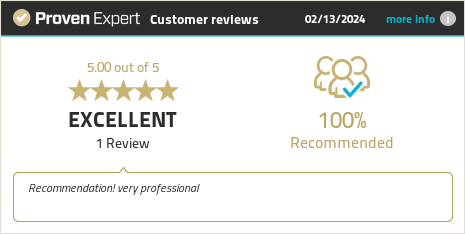Choosing the right platform for your online store is a critical decision that can significantly impact your business’s success. WooCommerce vs Shopify are two of the most popular eCommerce platforms, each offering unique features, pricing models, and user experiences. In this article, we’ll compare WooCommerce vs Shopify to help you determine which platform is best suited for your needs.
1. Overview of WooCommerce and Shopify
WooCommerce is an open-source WordPress plugin that allows you to turn your WordPress site into a fully functional online store. It’s highly customizable, giving users the freedom to create a store that perfectly matches their brand. Being a self-hosted solution, WooCommerce gives you full control over your website, but it also requires more technical knowledge and ongoing maintenance.
Shopify is a fully hosted eCommerce platform that provides everything you need to run an online store right out of the box. It’s known for its ease of use, making it an excellent choice for beginners or those who prefer a hands-off approach to technical details. Shopify handles all the hosting, security, and updates, allowing you to focus on running your business.
2. Ease of Use
When it comes to ease of use, Shopify has the upper hand. Shopify is designed to be user-friendly, with an intuitive interface and drag-and-drop functionality that makes setting up your store quick and straightforward. Since Shopify is a fully hosted platform, you don’t have to worry about finding a hosting provider, managing security, or performing software updates—everything is handled for you.
WooCommerce, on the other hand, requires a bit more technical know-how. Since it’s a WordPress plugin, you’ll need to set up a WordPress site first, then install and configure WooCommerce. While this process offers greater customization, it also means you’re responsible for hosting, security, and maintenance. For those who are comfortable with WordPress and want full control over their site, WooCommerce is a great choice, but it does have a steeper learning curve.
3. Customization and Flexibility
WooCommerce shines in the area of customization and flexibility. Because it’s open-source, you can customize virtually every aspect of your store. There’s a vast library of themes and plugins available, allowing you to add almost any feature or design element you can think of. If you’re familiar with coding, the possibilities with WooCommerce are nearly endless.
Shopify also offers a good level of customization, with a wide range of themes and apps available in the Shopify App Store. However, Shopify’s customization options are more limited compared to WooCommerce. While you can modify your store’s appearance and functionality, you’re somewhat constrained by Shopify’s ecosystem, and advanced customizations might require Shopify’s Liquid coding language.
4. Pricing
Shopify offers a straightforward pricing model with three main plans: Basic, Shopify, and Advanced, ranging from $39 to $399 per month. Each plan includes hosting, SSL certificates, and basic features, with more advanced features available at higher tiers. Shopify also charges transaction fees on sales unless you use Shopify Payments.
WooCommerce itself is free, but there are other costs to consider. Since WooCommerce is a self-hosted platform, you’ll need to pay for hosting, a domain name, and an SSL certificate. Additionally, premium themes, plugins, and extensions often come with their own costs. While WooCommerce can be more affordable than Shopify, it requires more time and effort to manage, and costs can add up depending on the features you need.
5. Payment Options
Both platforms offer a variety of payment options, but they differ in terms of integration and fees.
WooCommerce supports nearly all payment gateways, including PayPal, Stripe, Square, and many more. There’s no transaction fee beyond what the payment gateway charges, which can be a cost-saving advantage.
Shopify also supports a wide range of payment gateways, but it charges an additional transaction fee unless you use Shopify Payments. Shopify Payments has no additional fees, but it’s only available in certain countries. This makes WooCommerce a more flexible and potentially more affordable option when it comes to payment processing.
6. Scalability
As your business grows, your eCommerce platform needs to scale with it. Both WooCommerce vs Shopify are capable of handling large stores with high traffic, but they approach scalability differently.
Shopify is built to scale easily. As a fully hosted solution, Shopify manages server resources, so you don’t have to worry about site performance as your store grows. You can upgrade to higher-tier plans as needed, and Shopify’s infrastructure ensures that your site can handle increased traffic without slowing down.
WooCommerce is also scalable, but it requires more hands-on management. Since you’re responsible for hosting, you’ll need to ensure your server can handle increased traffic and store data. This might involve upgrading your hosting plan, optimizing your site, or even migrating to a more robust server. While WooCommerce’s scalability is virtually limitless, it requires more technical effort.
7. Support and Resources
Shopify offers 24/7 customer support via chat, email, and phone, making it easy to get help when you need it. Additionally, Shopify has a comprehensive knowledge base, community forums, and extensive documentation to guide you through any issues.
WooCommerce relies on community support, as it doesn’t have a dedicated support team. However, there’s a wealth of resources available, including official documentation, user forums, and third-party tutorials. Many hosting providers also offer support for WooCommerce, and there are numerous developers and agencies available for hire if you need professional assistance.
Conclusion: Which Platform Should You Choose?
The choice between WooCommerce vs Shopify ultimately depends on your specific needs and preferences.
- Choose WooCommerce if you value customization, flexibility, and control over your online store. It’s ideal for businesses that are comfortable with WordPress and want to create a unique, tailored shopping experience.
- Choose Shopify if you prioritize ease of use, reliable support, and a hassle-free setup. Shopify is perfect for those who want to focus on their business rather than managing the technical aspects of their website.
Both platforms are excellent choices for building an online store, and the right one for you will depend on your business goals, technical expertise, and budget.
Ready to launch your eCommerce store? Start your web project with Mouttahid Consulting today! Contact Us.












